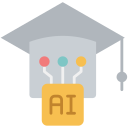AI and the Future of Educational Assessment
The integration of artificial intelligence into educational assessment is revolutionizing the ways in which student learning is measured and understood. AI introduces automation, adaptability, and advanced analytics into the evaluation process, moving beyond traditional exams and standardized testing. This new era promises deeper insights into student abilities, personalized feedback, and the potential to recognize a wider array of competencies. As educators and institutions embrace these innovations, the landscape of assessment is poised to become more equitable, efficient, and aligned with the needs of the modern learner.

Previous
Next
Redefining Assessment Through AI
Intelligent adaptive testing systems powered by AI can adjust the difficulty and nature of questions in real time based on a student’s responses. Instead of every student facing the same set of questions, the assessment evolves in accordance with individual performance. This not only keeps students engaged but also yields more precise measurements of their understanding and skills. Adaptive testing minimizes frustration from questions that are too difficult or boredom from questions that are too easy, allowing for a better assessment experience. The data derived from such assessments also provides teachers with a nuanced understanding of student strengths and areas for improvement, making interventions more targeted and effective.
Personalizing Assessment for Every Learner
Customizing Content and Pace
AI enables assessments to be tailored to each student’s prior knowledge and learning trajectory. By analyzing performance data and identifying trends, AI systems can select or generate questions that are neither too easy nor too difficult for any given learner. This customization not only sustains engagement but also challenges students appropriately, pushing them to reach their full potential at their own pace. Assessments can be adjusted dynamically to focus on areas where students need the most practice, rather than revisiting content they have already mastered. This individualized approach acknowledges student diversity and helps build confidence.
Accommodating Diverse Learning Needs
Artificial intelligence empowers educators to design assessments that consider a broad spectrum of learning needs, including those related to language, cognitive, or physical ability. AI-driven systems can offer multiple modes of response, flexible timing, and alternative formats, making assessments more accessible to students with disabilities or differing learning preferences. For English language learners, intelligent language models can adjust complexity or offer translations, supporting fair evaluation. The inclusivity provided by personalized, AI-based assessments fosters a more equitable educational environment and ensures that every learner’s progress is recognized accurately and meaningfully.
Ongoing Diagnostic Capabilities
AI facilitates continuous assessment, moving away from the limitations of periodic high-stakes testing. Intelligent systems can track student performance over time, providing ongoing diagnostics that capture evolving strengths, weaknesses, and learning trajectories. This approach ensures that interventions can be timely and highly relevant, rather than reactive or too late to make meaningful change. Ongoing diagnostics make it possible for teachers to refine instruction based on current, actionable data, supporting sustained learning and long-term development. The ability to monitor progress over time also empowers students to take ownership of their educational journeys, fostering motivation and resilience.
Overcoming Challenges of AI-Driven Assessment
The use of AI in educational assessment relies on the collection and analysis of vast amounts of student data. This raises important questions about privacy and the security of sensitive personal information. Educational institutions and technology providers must establish robust safeguards that protect data from unauthorized access or misuse. Transparent policies regarding data collection, storage, and sharing are essential for building and maintaining trust among students, parents, and educators. Commitment to high standards of cybersecurity and compliance with legal frameworks, such as data protection laws, ensures that advancements in assessment technology do not come at the expense of individual privacy.
